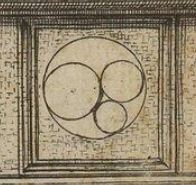The latest issue of Gazette des Mathématiciens, published by SMF, is out today.
Many interesting articles there, but I’d like to mention for now the one (pages 53 to 58) by Arnaud Pierrel, a PhD student in Sociology, who writes in the Parité column.
He studies students who are attending Classes Prépa Scientifiques (in short CPGE, that’s 2 years of very intensive undergraduate courses just after high school at the end of which students attempt various competitive exams to enter a variety of Schools, mainly in engineering but also in Math or Computer Science like the École Normale Supérieure in Paris, ÉNS).
One stunning statistic from Pierrel’s article, which underlines the sociological clichés that teachers are (subconsciously?) transmitting to their students, is the following (I’ve cut some inessential details, translation below):
Dans le cadre de notre recherche sur les CPGE scientifiques, nous avons suivi une promotion d’élèves (n = 176, soit deux classes MPSI-MP et deux de PCSI-PC) au prisme de leurs […] bulletins scolaires semestriels, en relevant systématiquement les types d’appréciations qui y figuraient.
Le constat est sans appel : alors même que filles et garçons réussissent en première année aussi bien les uns que les autres (ce qu’objectivent des passages en classe étoile en 3/2 dans les mêmes proportions), les jugements professoraux diffèrent. Aux filles, le « sérieux » ; aux garçons, le « potentiel » ou les « capacités inexploitées ». Le lien entre ces jugements différenciés et la construction de la croyance en sa valeur scolaire est lui aussi patent : ceux dont le « potentiel » est souligné à trois reprises ou plus dans les bulletins semestriels tentent leur chance au concours de l’ÉNS proportionnellement trois fois plus souvent que les autres (ie. deux occurrences ou moins). De sorte que les filles, pourtant aussi souvent que les garçons dans les classes étoiles de ce lycée, sont sous-représentées parmi ceux qui ont passé le concours de l’ÉNS. Ce n’est là qu’une facette du caractère collectif de la construction de la croyance en sa valeur scolaire. Il conviendrait de souligner également le rôle des milieux sociaux d’origine […]
Rough translation :
In the framework of our study on scientific CPGE, we have followed a cohort of students (n=176, two sets of Math-Physics majors over the two years, and two sets of Physics-Chemistry majors over the two years) by the prism of the written marks and comments given by their teacher to recap each semester.
The findings are without possible contest that : even though girls and boys succeed evenly in the first year (which is objectivized by the fact that they are allowed or not in the starred second year classes [the most select classes] in the same proportions) the judgements of the professors differ. To girls, “seriousness” ; to boys, “potential” or “inexploited abilities”. The link between these differentiated jugdments and the construction of one’s belief in one’s academic value is also apparent : those whose “potential” is underligned three times or more attempt the ÉNS competitive exam three times more often than those whose “potential” is mentioned two times or less. To the effect that girls, even though they are in the same amount as boys in the starred classes of the CPGE under study, are under-represented among those who attempt the ÉNS competitive exam. This is only one aspect of the collective character of the construction of one’s belief in one’s academic value. The role of the social origins of the students should also be underlined […]
Food for thought for all those involved in teaching…
[As usual, comments are moderated and appear during daytime of the european time zone.]

 Cyclidefibo1
Cyclidefibo1